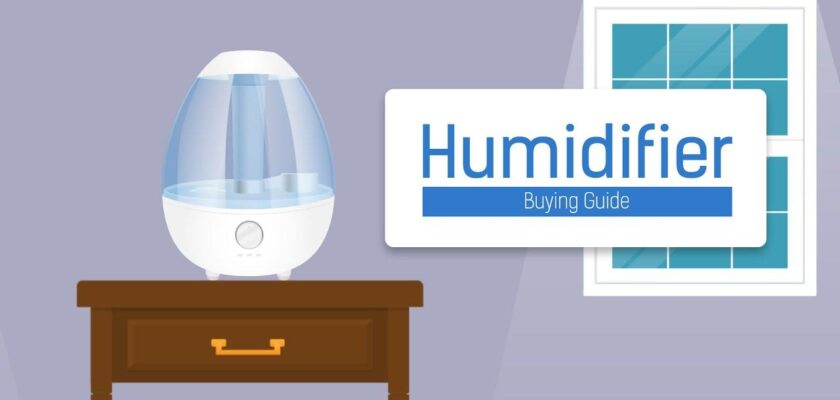A humidifier can be a great addition to your home or office, especially if you live in a dry climate or suffer from allergies or respiratory problems. But with so many options available, knowing which one to choose can be challenging.
What is a humidifier?
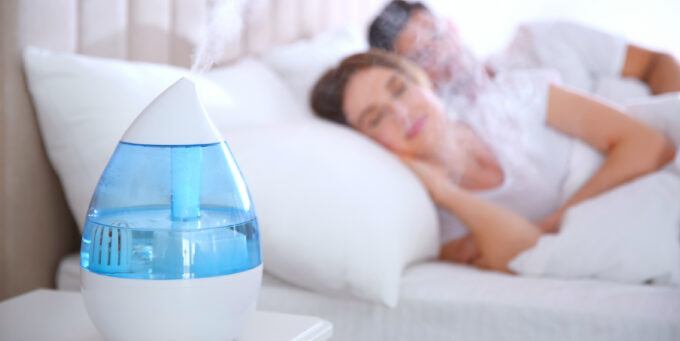
Source: hillcroftphysicians.com
A humidifier is a device that adds moisture to the air to increase the humidity level in a room or a building. It emits water vapor or steam to increase humidity and alleviate dryness. Humidifiers are often used in areas with low humidity or during winter when indoor heating can dry the air. They can relieve dry skin, allergies, asthma, and other respiratory problems by helping to keep the air moist and comfortable.
Types of humidifiers
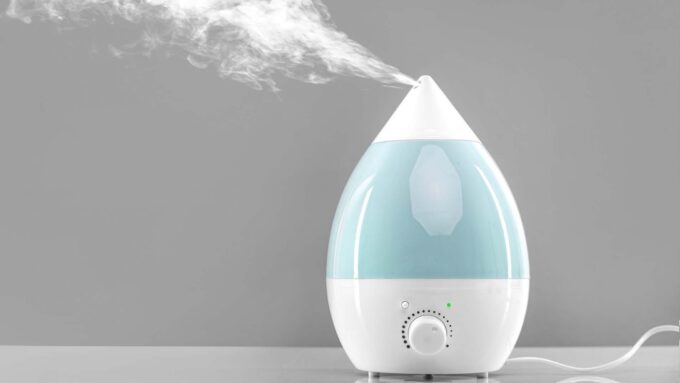
Source: guaranteedparts.com
There are several types of humidifiers available on the market, including:
- Ultrasonic Humidifiers: These humidifiers use high-frequency vibrations to release a fine mist into the air. They are often quiet and energy-efficient.
- Evaporative Humidifiers: These humidifiers use a fan to blow air through a wet wick or filter, releasing moisture. They can be cost-effective and easy to maintain.
- Warm Mist Humidifiers: These humidifiers boil water to create steam released into the air. They can help kill bacteria and viruses but can also be more expensive to operate and require more maintenance.
- Cool Mist Humidifiers: These humidifiers use a fan to blow air through a wet wick or filter, releasing cool mist into the air. They can be more energy-efficient and safer than warm mist humidifiers, especially if you have children or pets.
- Whole House Humidifiers: These humidifiers are installed directly into your home’s heating and cooling system to provide moisture throughout your entire home. They can be more expensive and require professional installation.
How does a humidifier work?
Humidifiers add moisture to the air in a room or building to increase the humidity level. The specific mechanism by which a humidifier works depends on its type. Still, the basic process involves adding water to the humidifier’s reservoir or tank, which is heated or otherwise agitated to produce water vapor or a fine mist. This moisture is then released through a fan or natural diffusion.
Benefits of humidifiers in your home
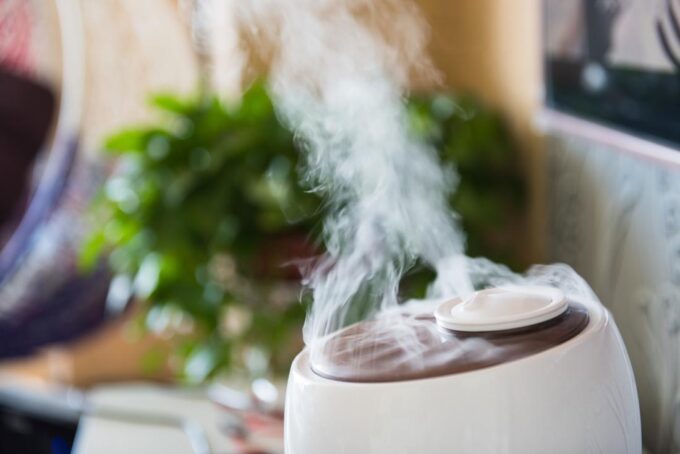
Source: medicalnewstoday.com
There are several benefits to using a humidifier in your home:
Alleviates dry skin
A humidifier can alleviate dry skin by adding moisture to the air. When the air in your home is dry, it can absorb moisture from your skin, leaving it dehydrated and uncomfortable. This is particularly common during winter when indoor heating can dry the air even more.
A humidifier can help keep your skin moisturized, soft, and supple by adding moisture to the air. This can also help reduce eczema and psoriasis symptoms, which can be worsened by dry air. In addition, humidifiers can help to prevent dry skin by promoting a healthy balance of oils and water in the skin.
Relieves respiratory problems
Dry air can irritate your respiratory system, leading to coughing, congestion, and sore throat symptoms. When the air is dry, it can cause the mucus membranes in your nose and throat to become dehydrated, making it more difficult for them to filter out allergens and other irritants.
A humidifier can help relieve respiratory problems by adding moisture to the air. When the air is more humid, it can help soothe your airways and make breathing easier. This can particularly benefit people with respiratory conditions such as asthma or COPD.
Reduces snoring
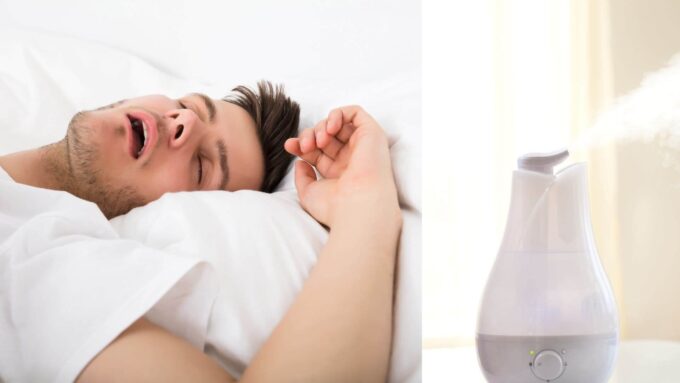
Source: homeairadvisor.com
A humidifier can help to reduce snoring by keeping the airways moist and lubricated. Snoring occurs when the airways become dry and irritated, which can cause the tissues in the throat to vibrate, leading to the characteristic snoring sound.
Using a humidifier can help keep the airways moist, reducing snoring by preventing the tissues in the throat from becoming dry and irritated. In addition, humidifiers can help to reduce congestion, which can also contribute to snoring.
Protects furniture and wood floors
Dry air can cause damage to furniture and wood floors by causing them to crack, split, or warp. This is because dry air can cause the moisture in the wood to evaporate, leading to structural damage over time.
Using a humidifier can help protect furniture and wood floors by adding moisture to the air, preventing the wood from drying out and becoming damaged. This can be particularly important in the winter when indoor heating can cause the air to become dry.
Factors to consider when buying a humidifier
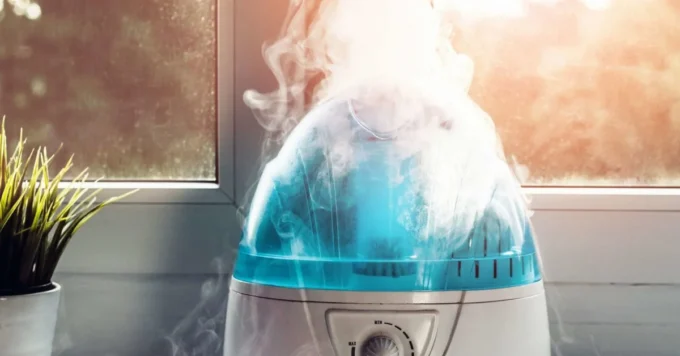
Source: medicalnewstoday.com
Here are some key factors to keep in mind:
- Type of humidifier: There are several humidifiers, including evaporative, ultrasonic, and steam. Each type has advantages and disadvantages, so choosing the type that best suits your needs is important.
- Size of the humidifier: The size of the humidifier you choose will depend on the room you want to humidify. A larger humidifier will be needed for a larger room, while a smaller one may be sufficient for a smaller space.
- Water tank capacity: The water tank capacity of the humidifier will determine how long the humidifier can run before needing to be refilled. A larger water tank may be more convenient, but it will also make the humidifier heavier and more difficult to move.
- Humidity control: Some humidifiers come with built-in humidity controls that allow you to adjust the humidity level in your room. This can be useful if you want to maintain a specific humidity level for health or comfort reasons.
- Noise level: Some humidifiers can be quite noisy, distracting, or disruptive, particularly if you plan to use the humidifier in your bedroom at night. Look for a humidifier that operates quietly if this concerns you.
- Maintenance requirements: All humidifiers require regular cleaning and maintenance to ensure they function properly and remain hygienic. Be sure to consider the maintenance requirements of the humidifier you are considering and choose one you are willing and able to maintain.
- Price: Humidifiers can range in price from under $20 to over $200, so it’s important to choose a humidifier that fits your budget while still meeting your needs. Remember that higher-priced humidifiers may offer additional features or better-quality materials to make them more durable and effective long-term.
Wrapping Up
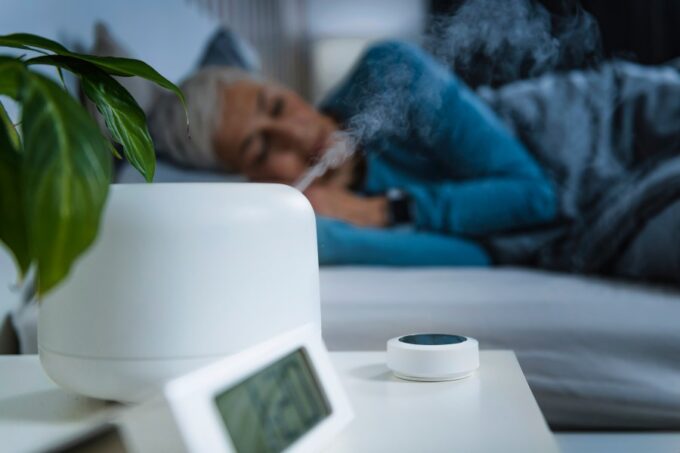
Source: garbageday.com
A humidifier can be a valuable addition to your home, particularly if you live in a dry climate or experience respiratory or skin issues. When choosing a humidifier, consider the type, size, water tank capacity, humidity control, noise level, maintenance requirements, and price to ensure that you select the right one for your needs and budget. By choosing the right humidifier and using it properly, you can enjoy the benefits of improved indoor air quality, reduced respiratory symptoms, and better skin health.

